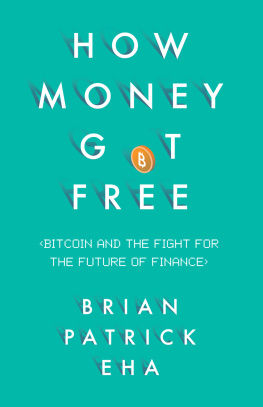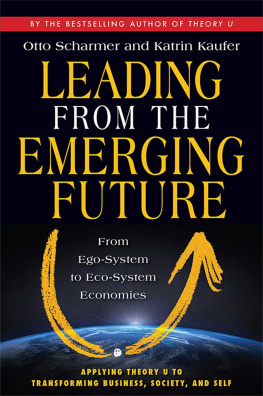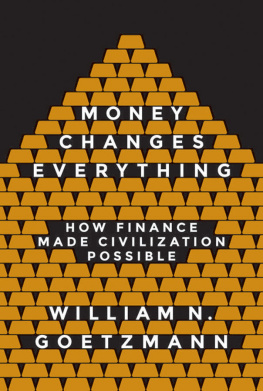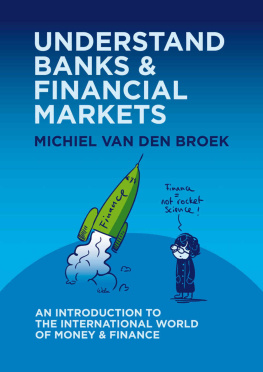Katrin Kaufer - Just Money: Mission-Driven Banks and the Future of Finance
Here you can read online Katrin Kaufer - Just Money: Mission-Driven Banks and the Future of Finance full text of the book (entire story) in english for free. Download pdf and epub, get meaning, cover and reviews about this ebook. year: 2021, publisher: MIT Press, genre: Business. Description of the work, (preface) as well as reviews are available. Best literature library LitArk.com created for fans of good reading and offers a wide selection of genres:
Romance novel
Science fiction
Adventure
Detective
Science
History
Home and family
Prose
Art
Politics
Computer
Non-fiction
Religion
Business
Children
Humor
Choose a favorite category and find really read worthwhile books. Enjoy immersion in the world of imagination, feel the emotions of the characters or learn something new for yourself, make an fascinating discovery.

- Book:Just Money: Mission-Driven Banks and the Future of Finance
- Author:
- Publisher:MIT Press
- Genre:
- Year:2021
- Rating:4 / 5
- Favourites:Add to favourites
- Your mark:
- 80
- 1
- 2
- 3
- 4
- 5
Just Money: Mission-Driven Banks and the Future of Finance: summary, description and annotation
We offer to read an annotation, description, summary or preface (depends on what the author of the book "Just Money: Mission-Driven Banks and the Future of Finance" wrote himself). If you haven't found the necessary information about the book — write in the comments, we will try to find it.
Katrin Kaufer: author's other books
Who wrote Just Money: Mission-Driven Banks and the Future of Finance? Find out the surname, the name of the author of the book and a list of all author's works by series.
Just Money: Mission-Driven Banks and the Future of Finance — read online for free the complete book (whole text) full work
Below is the text of the book, divided by pages. System saving the place of the last page read, allows you to conveniently read the book "Just Money: Mission-Driven Banks and the Future of Finance" online for free, without having to search again every time where you left off. Put a bookmark, and you can go to the page where you finished reading at any time.
Font size:
Interval:
Bookmark:
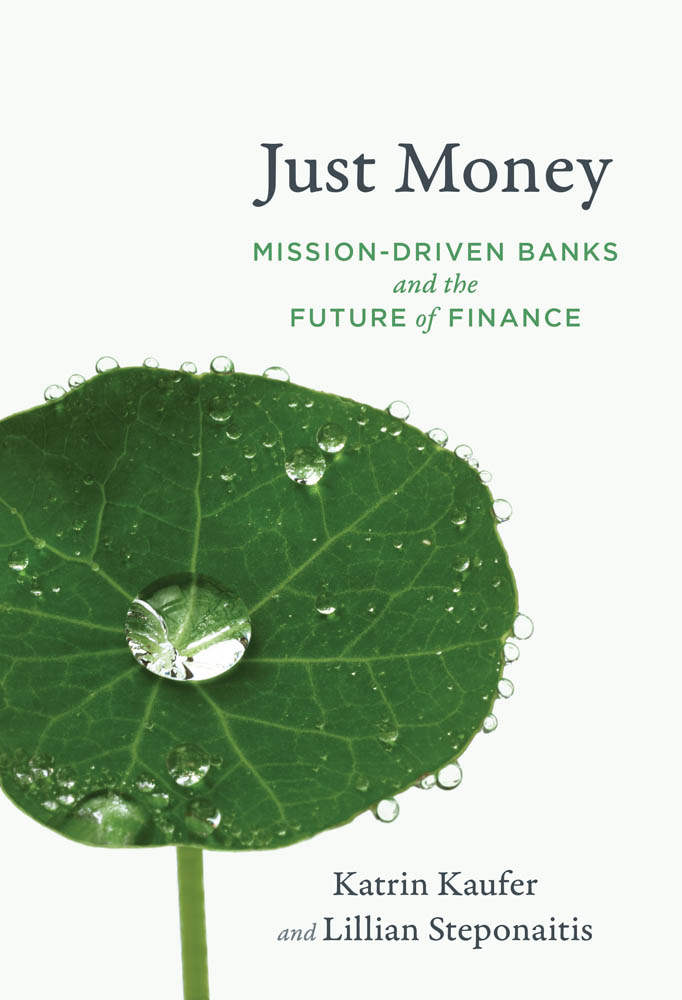
Just Money
Mission-Driven Banks and the Future of Finance
Katrin Kaufer and Lillian Steponaitis
The MIT Press
Cambridge, Massachusetts|London, England
2021 Massachusetts Institute of Technology
All rights reserved. No part of this book may be reproduced in any form by any electronic or mechanical means (including photocopying, recording, or information storage and retrieval) without permission in writing from the publisher.
Library of Congress Cataloging-in-Publication Data
Names: Kaufer, Katrin, author. | Steponaitis, Lillian K. (Lillian Kazimiera), author.
Title: Just money : mission-driven banks and the future of finance / Katrin Kaufer and Lillian Steponaitis.
Description: Cambridge, Massachusetts : The MIT Press, [2021] | Includes bibliographical references and index.
Identifiers: LCCN 2020008514 | ISBN 9780262542227 (paperback)
Subjects: LCSH: Financial institutions--Social aspects. | Banks and banking--Social aspects. | Social responsibility of business. | Social change.
Classification: LCC HG173 .K363 2021 | DDC 332.1--dc23
LC record available at https://lccn.loc.gov/2020008514
d_r0
To COS
To my parents
List of Figures
Anchoring triangle of Just Banking
Iceberg model of organizational reality
System transformation that incorporates a learning infrastructure
Four impact strategies
List of Tables
Examples of ownership and governance in Just Banking models
Three institutional anchors of Just Banking
Types of financial innovations aiming for positive social and environmental impact
Innovations in the field of investment decisions
Evolution of the economic logic toward ecosystem awareness
Banks define our future. Every investment decision writes the story of what our future will look like. This book provides an introduction to banks and financial institutions that align the impact of these decisions with the well-being of society and the planet. The urgency of the current disruptions, from the climate crisis to the stark social divides to the COVID-19 pandemic and its social and economic fallout, requires innovations and new solutions. As economic intermediaries, banks and financial institutions are in a unique position to identify and support these much-needed innovations; banks hold in their hands an important leverage pointnamely, facilitating the flow of finance and money in the economy.
This book invites you on a journey to visit financial institutions around the world that have succeeded in using their unique role to take on urgent challenges. They are innovators on the margins of our financial system. And while the idea of mission-based banking and investing is not newcredit unions, impact investment funds, and microfinance institutions are well-known examples of impact-aware finance around the worldwhat is new is its rapidly growing popularity. Almost every large bank offers impact investment options to its clients. The worlds largest financial technology (fintech) firm, Ant Financial, partnered with the United Nations Environment Program to launch a green digital financial alliance. One hundred eighty-one CEOs of large US companies signed a statement saying that companies should benefit all stakeholderscustomers, employees, suppliers, communities, and shareholdersa departure from how the purpose of business was framed in the past. More than three thousand businesses worldwide are certified as B Corporations, businesses that are balancing purpose and profit. BlackRock, the worlds largest asset manager, talks about societal responsibility and has announced that it will include climate change considerations in its investment decision-making.
While this trend toward impact-awareness in finance and business is growing, and more and more corporations are stating their intent to conduct business in socially responsible ways, there is a long road between making these announcements and actually having meaningful impact. Since 2008, we have worked with banks and financial institutions that use finance as a tool for positive change. This book shares what we have learned and explores different aspects of this emerging field: how these banks operate, what practices and tools they have developed, the systemic barriers they are confronted with, how they balance impact with profitability. The financial institutions discussed here are niche players in the financial system, but as innovators they experiment with ideas and products that can benefit the rest of the sector.
As we write, the fight against the COVID-19 pandemic has revealed the vulnerability and interdependency of our current systems and has shown that our well-being as a society depends on our ability to act collectively. Overcoming these challenges requires not only government intervention but also a transformation of how we organize our economy and financial sector. We will not be able to address the disruptive challenges we face as societies if the financial sector does not leave the neutrality paradigm behind and begins to develop financial solutions for those challenges. What the cases in this book illustrate is that banking with a mission is more than adding impact indicators to profitability goals. If climate change threatens the survival of the planet, it is not enough to report some carbon reduction; it is also vital to finance effective innovations that secure our survival. If a community suffers from the effects of systemic marginalization and racism, enabling power and self-determination should be central to the design of financial products that serve that community. We are beginning to see innovations in these financial institutions that measure their success against whether they are able to address the challenge. Doing so requires a new economic logic. We call this new logic ecosystem thinking because it requires businesses to make decisions and consider impacts in the context of the overall system they operate inbe it the community, the region, the society, or the planet as a whole.
This new logic requires new tools and business practices that enable organizations to find leverage points for systemic change. Ecosystem thinking has implications for how a financial institution is organized and run, for ownership models, and for relationships with customers. Transparency and accountability become central features, leadership approaches change, and the dialogue with clients shifts.
Chapter 1 begins with a quick visit to some of these institutions around the worlda European bank that is rethinking transparency in banking, a Canadian credit union that offers an alternative to payday lending, and a bank in Bangladesh that provides financing to small-business clients that do not have access to loans through the traditional banking system. The chapter also introduces the concept and core principles of Just Banking: banking with impact awareness at the core of the business model.
Chapter 2 asks whether profit and mission are compatible or contradictory. Why do so many impact-driven banks eventually lose their connection to their founding mission to create a positive impact? We discuss what it takes for a business to hew to a nonfinancial impact objective; we also introduce the three anchors of a mission-focused business: governance, organization, and leadership.
Font size:
Interval:
Bookmark:
Similar books «Just Money: Mission-Driven Banks and the Future of Finance»
Look at similar books to Just Money: Mission-Driven Banks and the Future of Finance. We have selected literature similar in name and meaning in the hope of providing readers with more options to find new, interesting, not yet read works.
Discussion, reviews of the book Just Money: Mission-Driven Banks and the Future of Finance and just readers' own opinions. Leave your comments, write what you think about the work, its meaning or the main characters. Specify what exactly you liked and what you didn't like, and why you think so.





